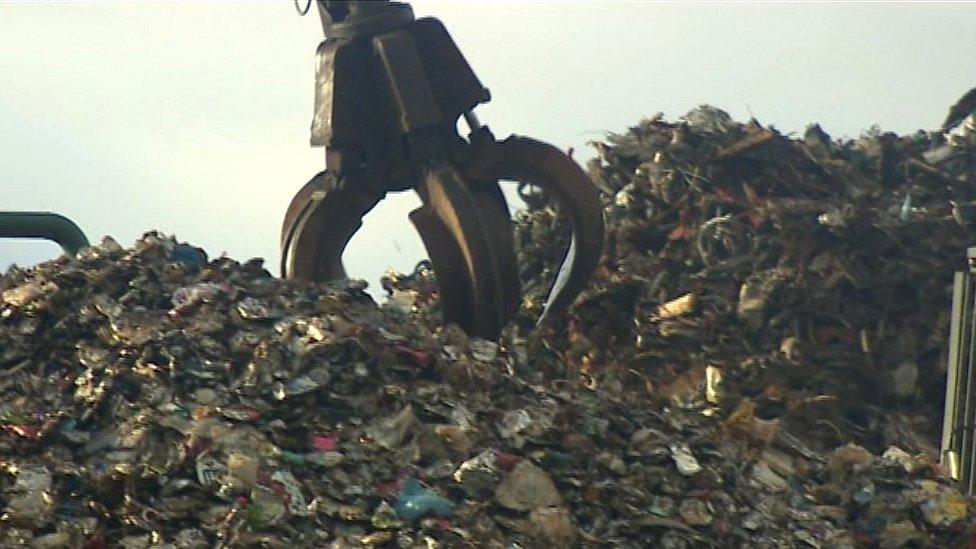Tata steel: Port Talbot faces bulk of 1,050 job losses
- Published
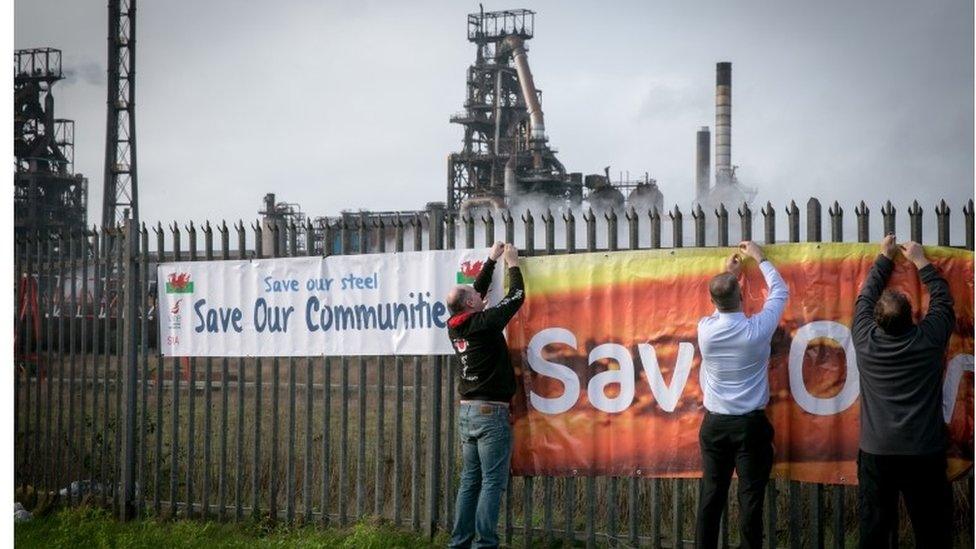
A union banner outside the Port Talbot plant on Monday which was later taken down by security staff
More than 1,000 jobs are to go at Tata Steel plants, mostly in south Wales.
Tata said 750 jobs would go in Port Talbot, while 200 support staff elsewhere would be axed.
Other job losses would include 15 at Trostre, Llanelli along with jobs going at Hartlepool in north east England and at Corby, Northamptonshire.
It said "tough actions are critical in the face of extremely difficult market conditions".
Tata Steel said necessary steps were being taken to keep the 3,500 jobs remaining jobs in Port Talbot
Karl Koehler, chief executive of Tata Steel's European operations,, external said: "We need the European Commission to accelerate its response to unfairly traded imports and increase the robustness of its actions. Not doing so threatens the future of the entire European steel industry.
"And while we welcome progress on UK energy costs, the (UK) government must take urgent action to increase the competitiveness of the UK for its vital steel sector.
"This includes lowering business rates and supporting energy efficiency and anti-dumping cases so we can compete fairly."
More than 1,000 jobs are being axed - 750 at Port Talbot alone
Stuart Wilkie, hub director of Tata UK's strip mills division, said they were taking the necessary steps to keep the 3,500 jobs remaining jobs in Port Tabot but still needed help.
"State aid or part nationalisation isn't the way forward," he said.
"We want a level playing field that we can compete on our own two feet in the European and global market place."
He believed they could turn it around but could not say Monday's job losses were enough to secure the plant or satisfy Tata bosses in India.
"I couldn't write off anything. The challenge is we need the workforce and ourselves as managers to respond to the challenges if we're to sustain a long term future for the plant in Port Talbot."
David Cameron: 'I want a strong British steel industry'
Prime Minister David Cameron said: "We'll work very closely with the company, with the local communities to do everything we can, to get people the training and the assistance they need.
"And we'll continue to help the steel industry."
Labour said the UK Government had delivered "little concrete action" but Business Minister Anna Soubry insisted it had responded to many of the demands from the steel industry and was creating a "level playing field" such as cutting energy costs.
First Minister Carwyn Jones described the job cuts as a "devastating blow" to the community and the wider economy.
First Minister Carwyn Jones promises support after the job losses
Earlier, Community general secretary Roy Rickhuss called for "meaningful action" from the UK government.
Cheap Chinese imports, a strong pound and high energy costs have been called "a perfect storm" for the UK steel industry.
Mr Rickhuss added: "The dumping of cheap Chinese steel is one of the biggest causes of this crisis, yet the UK government remains a cheerleader for China and their bid for 'market economy status', which would decimate what's left of our steel industry. This cannot be allowed to happen."
But he called for long-term commitment to steel making in the UK from Tata after "significant sacrifices" from its workforce.

Analysis by Brian Meechan, BBC Wales business correspondent
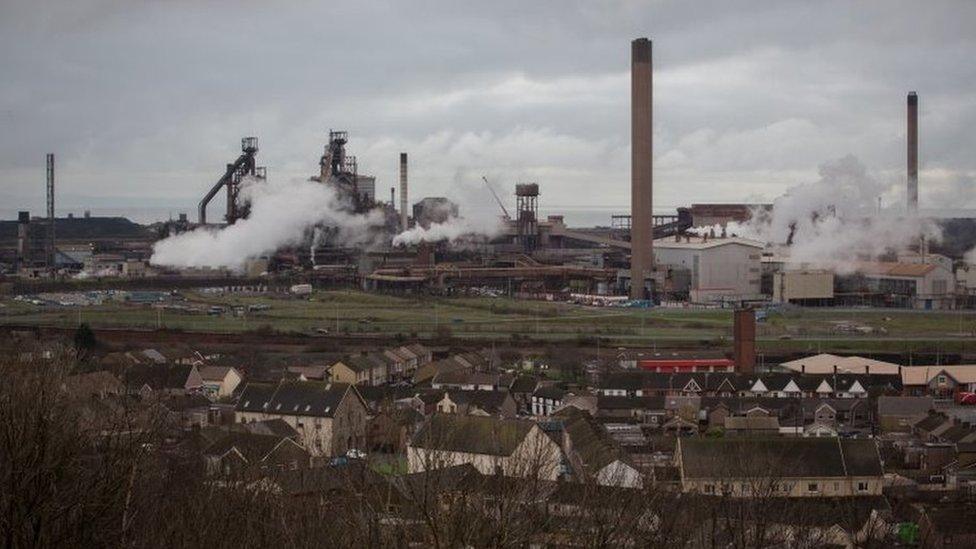
The steelworks have been part of the scene in Port Talbot for decades. It is the biggest plant in the UK, providing well paid jobs that are difficult to replace. For every job in the steelworks, it is estimated another four jobs in the local economy are supported.
This is another bitter blow for the Tata plant and an industry that has been struggling and a workforce that has put a lot in, in recent years, to try to make Tata competitive.
But it is fighting against global forces including cheap imports from China. The UK government has put in measures recently to deal with high energy costs but the industry has been calling for these for four or five years.
The steel industry has not really recovered from the financial crash in 2008 when at its height people stopped buying white goods, cars, and construction stopped. We talk a lot about dumping but it is cheaper to produce steel in China and that is not going to change.
Tata have invested quite heavily in Port Talbot with the new blast furnace in particular and also in the workforce and it has been quite patient.
But ultimately the concern is that patience will eventually run out. We are looking at a meeting at Tata headquarters in India in a few weeks time and the company will look at the proposals made by Tata UK and may think that is a best case scenario and does not go far enough.

BBC Wales economics correspondent Sarah Dickins traces the history of Port Talbot steelworks
Tata Steel Europe, which employs 17,000 in the UK, is in the throes of a wide-scale reorganisation of its business.
It employs now around 5,500 in Wales and has made 5,000 cuts in the UK over the last year. It is estimated to be losing £1m a day at Port Talbot alone.
It currently puts £200m a year into the Welsh economy in wages.
Andy Richards, Unite Wales secretary, said steel "runs through the heart of the Welsh economy".
He added: "Job losses on this scale will reverberate through the supply chain, communities and associated industries across Wales."
The Federation of Small Business described the losses as a "a hammer blow".
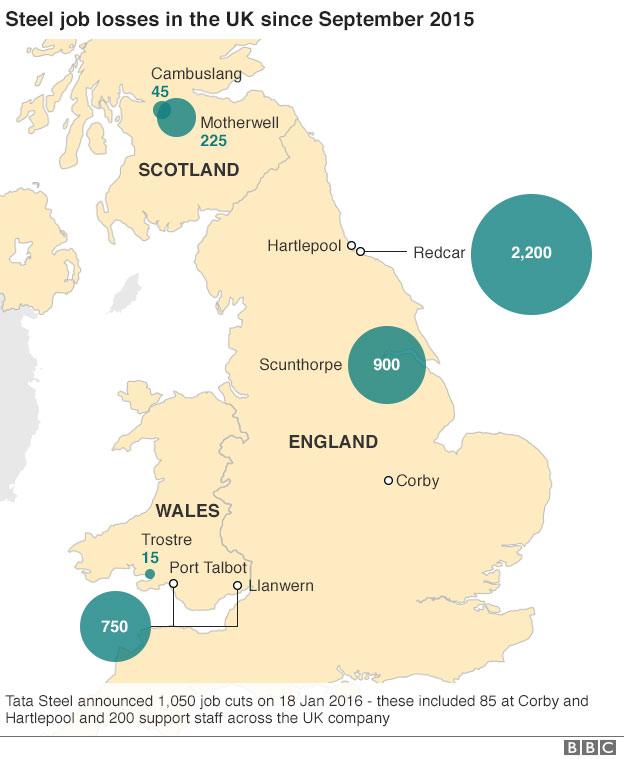

What is Tata Steel?
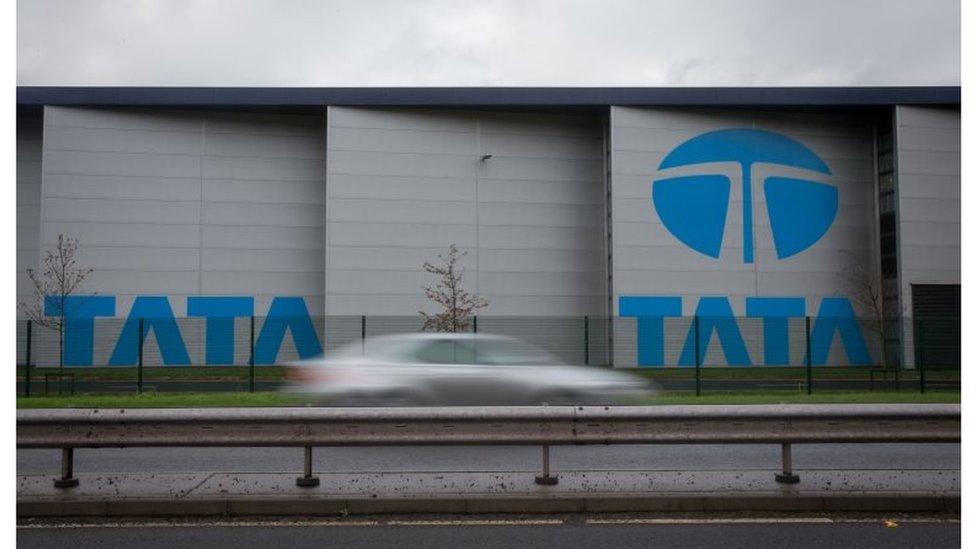
Tata Steel employs more than 80,000 people worldwide and is part of the wider Tata Group, an Indian conglomerate.
Founded more than 100 years ago, it has grown into a global producer with operations in 26 countries and revenue of around £15bn last year.
It became Europe's second largest steel producer, and the biggest in the UK, after it bought Corus, formerly British Steel, for £8bn in 2007.
Tata also has plants in the Netherlands, Germany, France, Belgium and south east Asia.
The steel it produces is used to make a huge range of products, from cars to office furniture and battery cases.

- Published18 January 2016
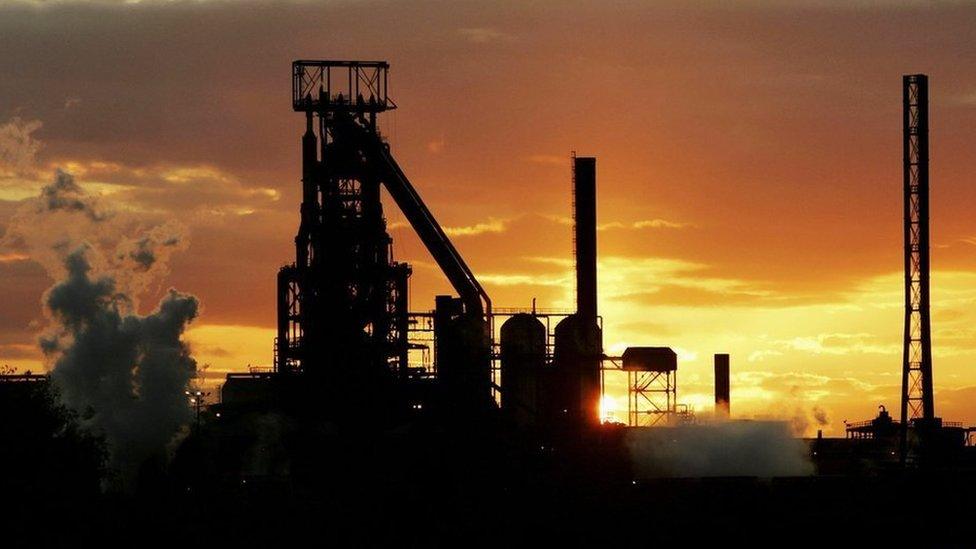
- Published18 January 2016
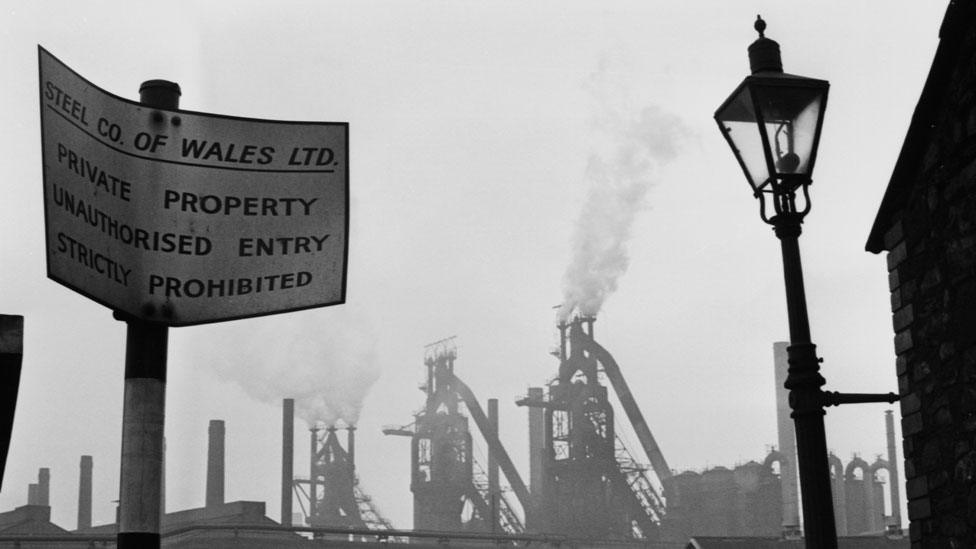
- Published18 January 2016
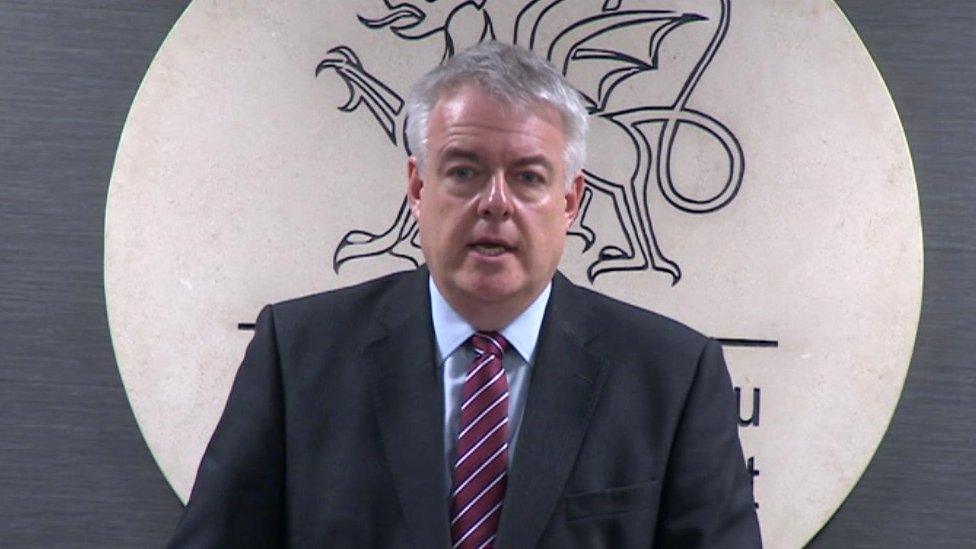
- Published21 December 2015
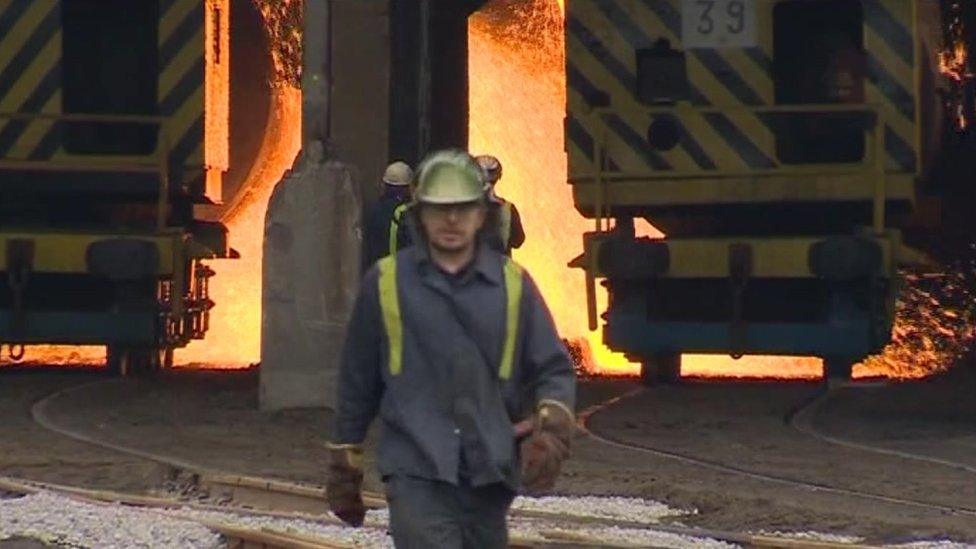
- Published17 January 2016

- Published11 January 2016
